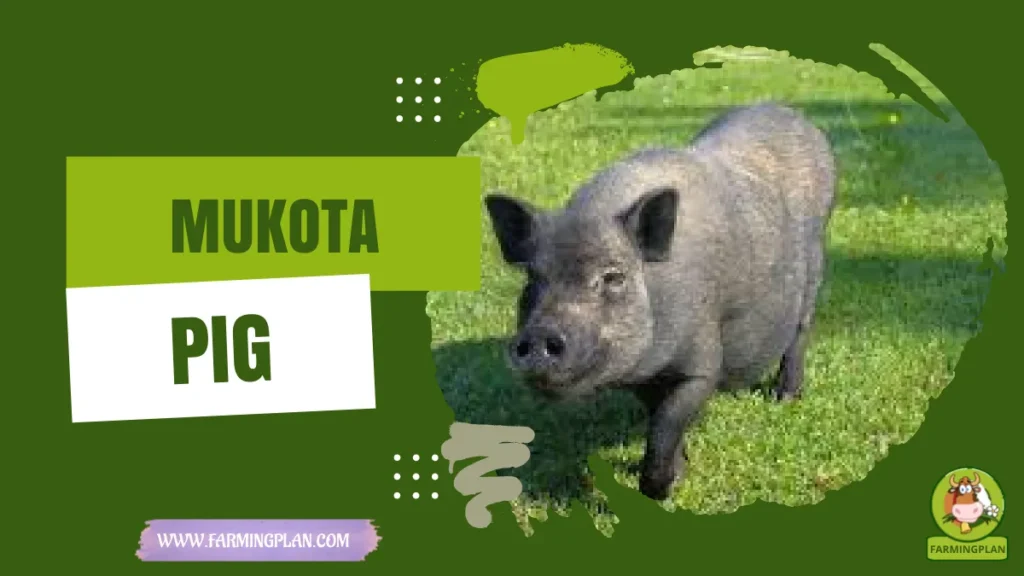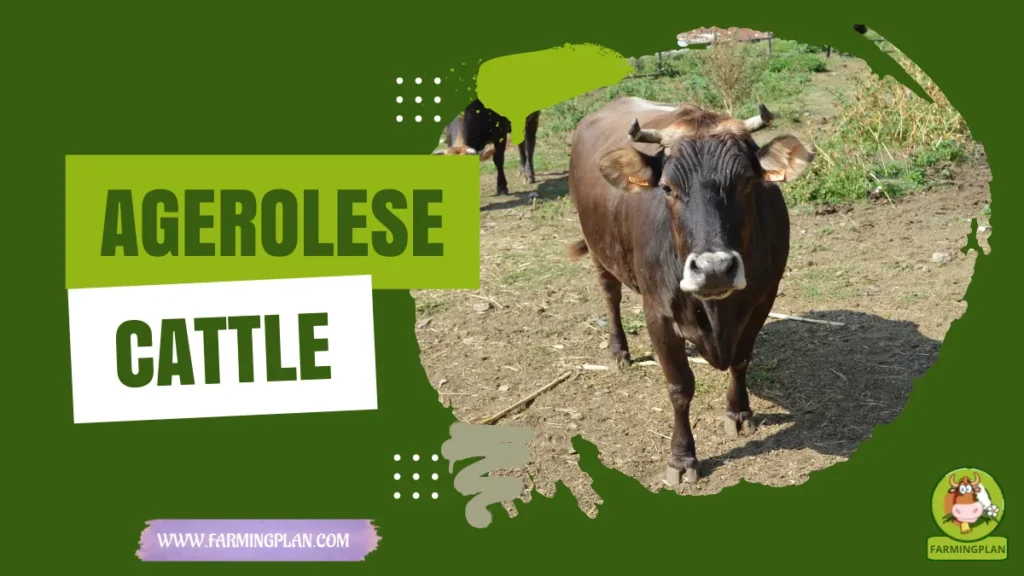People everywhere love the Barbados Blackbelly Sheep because of its exceptional ability to survive in tropical conditions combined with its desirable features, which make the livestock popular among both farmers and enthusiasts. With a reddish-brown or tan body, well-sprung ribs, and black belly, the Barbados Blackbelly Sheep is not only admired for its appearance but also its resilience and health benefits, as it requires little to no chemical intervention to thrive. Whether you’re a hobbyist interested in raising pet sheep, a farmer seeking a hardy tropical sheep for meat production, or a breeder looking for registered sheep with excellent genetics, the Barbados Blackbelly Sheep could be the perfect fit.
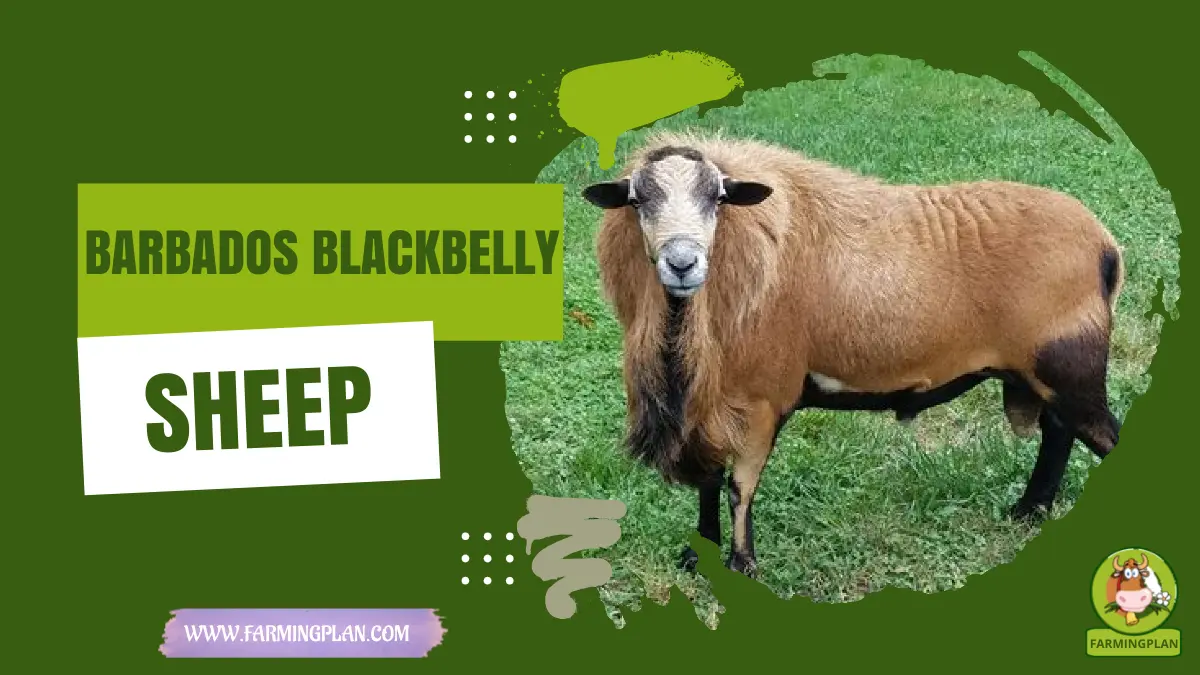
History & Origin of the Barbados Blackbelly Sheep
A long-running heritage accompanies the Barbados Blackbelly Sheep, which began in Caribbean territory when breeders initially developed it. The African hair sheep served as the ancestry of the Barbados Blackbelly Sheep due to early colonizers and traders who transported these sheep to the Caribbean. Through time, the sheep populations developed resistance to survive in the harsh environments of Caribbean islands, specifically Barbados, which became their main farming animal. The tropical climate compatibility of this breed served farmers by making it a valuable asset because wooled sheep could not survive such conditions.
Unlike many other sheep breeds, the Barbados Blackbelly does not require heavy wool growth, thanks to its hair sheep traits. This makes it especially well-suited for tropical and subtropical regions, where wool breeds might struggle due to the heat. The breed’s distinctive reddish-brown and tan body with a black belly is one of its most notable characteristics, making it easily identifiable.
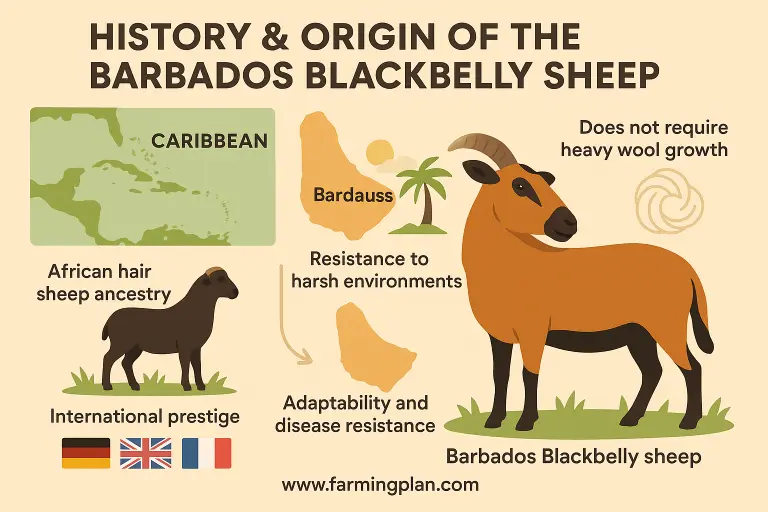
The Barbados Blackbelly Sheep now carries international prestige thanks to its extensive breeding programs throughout different countries especially European nations. Today, the Barbados Blackbelly breed keeps its value owing to the high price of its flavorful meat coupled with its simple care needs, which serve owners throughout various farm types. Barbados Blackbelly Sheep represent a preferred breed because they demonstrate two essential characteristics: superior adaptability and natural resistance to tropical area sheep diseases.
Reads More: Chester White Pig: 5 Powerful Reasons for Premium Pork
Characteristics of Barbados Blackbelly Sheep
Barbados Blackbelly Sheep stands out as an attractive breed that displays its distinct physical traits during observation. This sheep’s reddish-brown or tan body possesses a black belly, which creates a distinct appearance when mixed with other sheep in the Flock. The Barbados Blackbelly Sheep’s visual appeal results primarily from its defining color pattern.
Body Size & Structure
Barbados Blackbelly Sheep have a well-sprung rib cage and a medium-sized body, which is well-suited for the tropical environments in which they thrive. The body capacity and body frame are excellent for producing healthy lambs and maintaining strong physical health, even under minimal care. This breed has an ideal weight range that helps it perform well in farming environments, ensuring it doesn’t suffer from weight-related health issues.
Horns
The presence of horns in Barbados Blackbelly Sheep can vary. Some sheep have horns, while others, known as polled hair sheep, are hornless. The horned rams and ewes are typically more common, and their horn growth is an interesting feature for breeders. The breeding for horn growth is one of the key genetic traits that farmers look for, as it is often linked to the overall health and genetic quality of the Flock.
Other Distinctive Features
Barbados Blackbelly Sheep are often free of wool, unlike traditional sheep breeds. They are considered hair sheep, meaning they shed their fur naturally and don’t require shearing, which is a significant advantage in hot climates. Their ability to maintain minimal body fat while keeping a lean and strong body frame makes them excellent for meat production.
This combination of body size, color characteristics, and the presence of horns makes the Barbados Blackbelly Sheep one of the most distinctive and practical sheep breeds in both commercial and hobby farming. Their unique features not only make them visually striking but also highly functional in terms of livestock management.
Nature & Temperament of Barbados Blackbelly Sheep
The Barbados Blackbelly Sheep is known for its calm, friendly, and easygoing nature, making it an excellent choice for both farmers and those seeking pet sheep. These sheep are gentle and adaptable, which makes them suitable for a wide range of owners—from experienced livestock farmers to hobbyists or pet owners who are new to sheep-keeping.
Behavior and Personality
Barbados Blackbelly Sheep are known for their distinct physical traits and friendly temperament. They are typically non-aggressive and get along well in a flock. Their calm demeanor makes them easier to handle, even for those who have limited experience with sheep. This makes them especially appealing to people who want a sheep that’s easy to manage and maintain.
Suitability for Different Owners
Whether you are raising Barbados Blackbelly Sheep for meat production, wool harvesting (or lack thereof, as they are hair sheep), or as pets, these sheep fit the bill. They are highly adaptable and thrive in various living conditions, provided they have access to good nutrition and regular care. For pet sheep owners, their gentle nature and ability to bond with humans make them an enjoyable addition to the farm or homestead. They are also known for being less flighty than some other breeds, which helps reduce stress for both the sheep and their caretakers.
Compatibility with Other Animals
The Barbados Blackbelly is generally peaceful around other animals, making it an ideal choice if you have other livestock or farm animals. Its calm temperament and social behavior make it compatible with other sheep, goats, cows, and even poultry.
In summary, Barbados Blackbelly Sheep’s nature and temperament make them a versatile and valuable breed, well-suited for a variety of farming situations and even as friendly, low-maintenance pets.
Food & Diet of Barbados Blackbelly Sheep
Proper nutrition is essential for the health and well-being of Barbados Blackbelly Sheep, whether they are raised for meat production, as pet sheep, or for other purposes. Understanding their specific dietary needs helps ensure they maintain a healthy weight, good body condition, and optimal health.
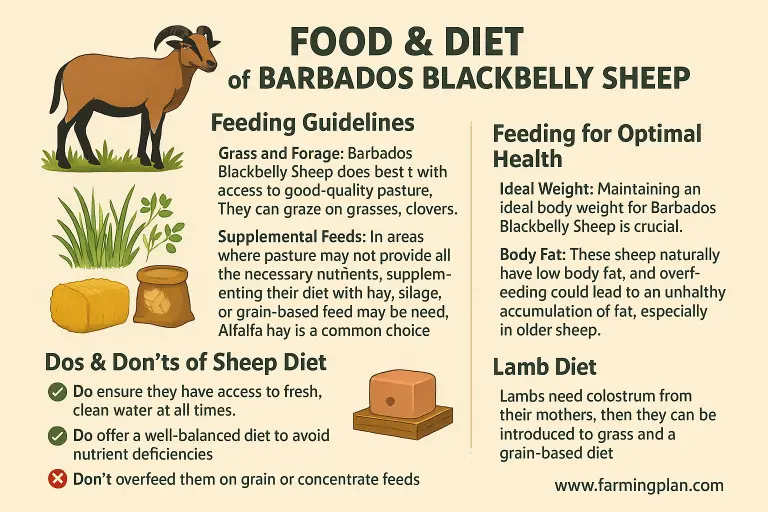
Feeding Guidelines
The Barbados Blackbelly Sheep is a hardy breed, capable of thriving on a simple, pasture-based diet. Since they are tropical sheep, they are particularly well-suited to grazing on grass and other vegetation found in warmer climates. However, they may also need supplementary feed to ensure they are getting the right balance of nutrients, especially during dry seasons or when pasture quality is low.
- Grass and Forage: Barbados Blackbelly Sheep does best with access to good-quality pasture. They can graze on grasses, clovers, and other forage plants.
- Supplemental Feeds: In areas where pasture may not provide all the necessary nutrients, supplementing their diet with hay, silage, or grain-based feed may be needed. Alfalfa hay is a common choice for young lambs, but adult sheep benefit from high-fiber hay, like grass hay.
- Minerals and Salt: Providing access to a salt lick or mineral block is important to ensure they get the necessary vitamins and minerals, particularly calcium and phosphorus, to support overall health.
Dos & Don’ts of Sheep Diet
- To ensure they have access to fresh, clean water at all times. Dehydration can affect their health and productivity.
- Do offer a well-balanced diet to avoid nutrient deficiencies, especially when they are raising lambs or pregnant.
- Don’t overfeed them on grain or concentrate feeds, as this can lead to obesity or other health issues like bloat.
- Please don’t feed them spoiled or moldy hay, as it can lead to respiratory or digestive problems.
Feeding for Optimal Health
- Ideal Weight: Maintaining an ideal body weight for Barbados Blackbelly Sheep is crucial. They tend to gain weight efficiently when fed properly, which benefits their meat production capabilities.
- Body Fat: These sheep naturally have low body fat, and overfeeding or improper feeding could lead to an unhealthy accumulation of fat, especially in older sheep.
Lamb Diet
Lambs need special attention when it comes to feeding, as they require colostrum from their mothers for the first few days of life to build their immunity. After weaning, they can gradually be introduced to grass and a grain-based diet. Lambs aged 5-7 months typically start to be prepared for the market with increased feeding to ensure they are in optimal condition.
By maintaining a balanced diet focusing on quality pasture and the occasional supplementation, Barbados Blackbelly Sheep can thrive in a variety of environments and provide healthy, sustainable meat for farming operations.
Usage & Purpose of Barbados Blackbelly Sheep
The Barbados Blackbelly Sheep is a versatile livestock breed that demonstrates capabilities in various farming conditions. Its purposes extend from supplying meat to existing pet animals and competing in shows. The breed demonstrates versatile farming uses because it needs minimal care while being highly robust, which serves farmers who operate extensive operations and small breeders alike.
Meat Production
One of the primary uses of Barbados Blackbelly Sheep is meat production. The sheep produce lean meat, which leads to their primary purpose as a source for producing lamb. Many customers choose meat with this specific taste because it appears during spring when sheep give birth. Sheep destined for the meat market require an average weight of 5 to 7 months but are considered an excellent investment for producers seeking profits in the meat industry.
- Lamb Meat Flavor: The flavor of lamb meat from Barbados Blackbelly Sheep is considered mild yet flavorful. It is often preferred by those who enjoy a less gamey taste compared to traditional sheep meat.
- Market Demand: There is a growing market for hair sheep, and Barbados Blackbelly Sheep is often sought after for its excellent meat quality and ease of care.
Pet Sheep
Though bred initially for farming, the Barbados Blackbelly Sheep also makes an excellent pet for those looking for a low-maintenance companion. Due to their friendly temperament, they are suitable for owners who want a sheep as a pet but are not looking to raise them for meat production. Barbados Blackbelly Sheep are particularly suited to those living in tropical or subtropical climates due to their hair sheep characteristics, which eliminate the need for shearing.
Ideal Pet: Their calm and gentle nature makes them a perfect choice for families or individuals interested in keeping a pet sheep on their property.
Show Sheep
Barbados Blackbelly Sheep are also featured in livestock shows, particularly in the Caribbean, but increasingly in international sheep competitions. Their unique color characteristics, body size, and horned appearance make them a popular choice in the show ring. This breed’s distinct looks and well-conformed body often give them an advantage in competitions, especially those focused on showcasing the best breeds of sheep.
Other Uses
In addition to their primary roles, Barbados Blackbelly Sheep can be used for other purposes such as:
- Fleece Production: While they are hair sheep and do not produce wool, their hair is helpful in crafting and making materials like ropes or rugs.
- Grazing: Barbados Blackbelly Sheep are often used to help maintain pasturelands and control overgrowth due to their efficient grazing ability.
Overall, the Barbados Blackbelly Sheep offers numerous benefits to farmers, pet owners, and breeders alike. Whether you’re looking to raise them for meat production, as pets, or to compete in livestock shows, this breed provides a versatile and practical solution.
“Thrive Like The Barbados Blackbelly Sheep: Resilient, Adaptable, And Built For Success!”
Special Features of the Barbados Blackbelly Sheep
The distinctive traits of Barbados Blackbelly Sheep separate it from other breeds, enabling farmers and hobbyists to develop a fondness for this particular breed. Farmers benefit from this sheep breed because it offers different special characteristics suitable for various farming needs. Adaptation to Tropical Climates:
This distinctive characteristic of the Barbados Blackbelly Sheep enables successful habitation in tropical areas with humid and hot environments. The Barbados Blackbelly stands apart from wooled sheep due to its hair-sheep nature, which leads to coat shedding instead of wool development. Its natural adaptation helps the sheep reduce heat while being suitable for warm environments lacking substantial rainfall.
Resilience: This breed has developed resilience to tropical climates, thriving in regions where other breeds would struggle. It is also known for its resistance to many common sheep diseases, reducing the need for chemical interventions or constant medical attention.
Distinctive Physical Traits
- Reddish-Brown or Tan Body: Barbados Blackbelly Sheep are easily recognizable by their reddish-brown or tan body with a black belly. This color characteristic makes them stand out in a flock and adds to their appeal for show purposes.
- Well-Sprung Ribs: The breed features a well-sprung rib cage, which is essential for lambing and maintaining overall body health. This physical trait also contributes to the sheep’s good body conformation, making it ideal for breeding programs and meat production.
- Horned or Polled: While many sheep breeds are known for their wool, the Barbados Blackbelly stands out for its horned or polled varieties. The horned sheep are particularly prized for their unique horn growth patterns, which can vary from ewe to ewe or ram to ram.
Low-Maintenance Needs
One of the most significant advantages of raising Barbados Blackbelly Sheep is their low-maintenance care. Unlike wooled sheep that require regular shearing, the Barbados Blackbelly does not produce wool. This saves farmers time and effort, as there is no need for costly shearing or wool processing. Their hair also makes them less susceptible to heat stress compared to wool breeds.
No Chemical Intervention: Barbados Blackbelly Sheep are naturally free from common diseases and health complications that often plague wooled sheep, meaning they can be raised with minimal or no chemical intervention. This makes them an excellent choice for organic farming or those looking for a more sustainable livestock option.
Reproductive Efficiency
The Barbados Blackbelly is also known for its reproductive efficiency. It can produce 1.50-2.30 lambs per birth, making it a great choice for breeders looking for high lambing rates. The breed has a slight tendency to produce twins, ensuring greater productivity and farm profitability.
Hardy Flock Animal
Barbados Blackbelly sheep operate best as herds that work effectively in non-formal collaborative agriculture practices. The breed matches well with small to large farm operations because it shows strength adaptation and needs basic maintenance. Sheep farmers recognize the Barbados Blackbelly Sheep as unique since they thrive in tropical environments and display unique attributes while requiring basic care. The industry could benefit from multiple valuable applications of Barbados Blackbelly Sheep because these animals exhibit strong performance with their practical features and unique functional aspects.
Reads More: Barbado Da Terceira Dog: 5 Reasons It’s Your Best Family Pet
Health Issues & Prevention in Barbados Blackbelly Sheep
While the Barbados Blackbelly Sheep is generally a hardy breed, like all livestock, it is still susceptible to certain health issues. Fortunately, its natural resistance to many common sheep diseases and low-maintenance nature help reduce the risk of frequent health problems. However, it is essential to monitor its health regularly to prevent or address any potential issues that may arise.
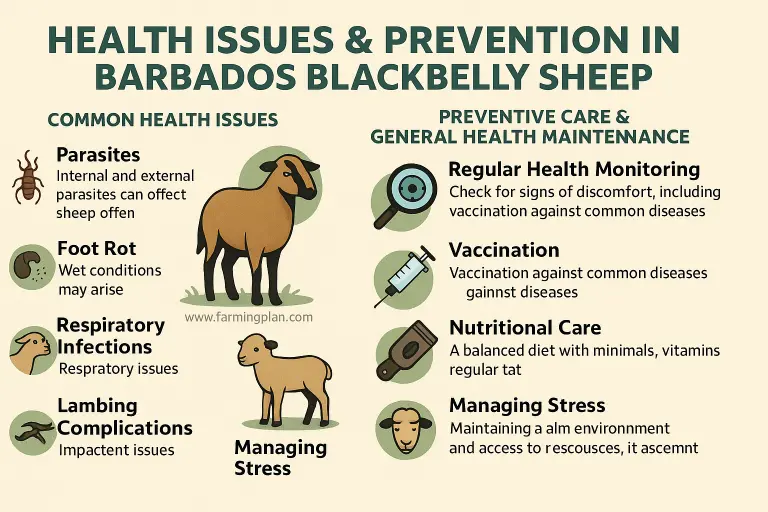
Common Health Issues
Parasites: Like all sheep, Barbados Blackbelly Sheep are vulnerable to internal and external parasites. Gastrointestinal worms (e.g., roundworms, hookworms) and external parasites such as ticks or flies can cause discomfort and health complications.
Foot Rot: Foot rot is another issue that can affect sheep, especially in areas with wet conditions. While Barbados Blackbelly Sheep are pretty adaptable, maintaining clean and dry living environments is essential to prevent foot infections.
Respiratory Infections: Barbados Blackbelly Sheep are generally resistant to common respiratory diseases, but extreme weather changes or overcrowded conditions can cause respiratory issues like pneumonia.
Lambing Complications: While Barbados Blackbelly Sheep are known for their high fertility and efficient lambing, complications during birth can still occur, especially in first-time ewes.
Preventive Care & General Health Maintenance
- Regular Health Monitoring: Check your Barbados Blackbelly Sheep regularly for signs of illness or discomfort, including a healthy coat, bright eyes, and a clean nose. Periodically inspect the hooves and ensure they are not overgrown or cracked.
- Vaccination: Ensure that your sheep are vaccinated against common diseases, including clostridial diseases (e.g., tetanus, enterotoxemic) and ovine respiratory diseases.
- Nutritional Care: Providing a balanced diet with appropriate minerals and vitamins can help maintain the sheep’s immune system and overall health, reducing the risk of disease.
Regular Grooming
Even though Barbados Blackbelly Sheep does not require shearing, regular grooming is essential to maintain healthy skin and coats. Brushing the sheep periodically to remove loose hair and dirt can help prevent skin irritations or infections.
Managing Stress
Stress is a significant factor that can contribute to health problems in sheep. Ensure that the sheep are kept in a calm environment, with access to clean water, sufficient food, and shelter. Avoid sudden changes in their living conditions or diet, as these can trigger health issues.
Tip:“Healthy sheep start with good management. Regular health checks, a balanced diet, and a clean environment go a long way in preventing illness and ensuring a productive flock.”
By following these health guidelines and taking a proactive approach to care, Barbados Blackbelly Sheep can thrive, producing healthy lambs and offering high-quality meat with minimal health complications.
Step-by-Step Farming Guide/Pet Owner Care Guide
Breed management of Barbados Blackbellies requires minimal effort because these animals have both strong resistance and basic care requirements. If you choose to care for Barbados Blackbelly Sheep for meat production, as pets, or for any other reason, success depends completely on meeting their fundamental needs while giving them appropriate care. To begin raising Barbado’s Blackbelly Sheep, use the following sequential guide.
Step 1: Setting Up the Environment
Farming Setup
Before bringing your Barbados Blackbelly Sheep to your farm or property, you’ll need to prepare a suitable environment for them to thrive. This includes a safe, clean area with access to grazing space.
- Pasture: Barbados Blackbelly Sheep do best on good-quality pasture where they can graze on grass and other vegetation. If pasture isn’t sufficient, supplement with hay and grain-based feed.
- Shelter: Though they are tropical sheep, Barbados Blackbelly Sheep still need some form of shelter to protect them from extreme weather conditions (like heavy rains or cold nights). A simple barn or shelter with good ventilation is sufficient.
Penning and Fencing
Ensure the sheep’s area is enclosed with secure fencing to prevent them from wandering off. Fencing should be strong and at least 4 feet high. The Barbados Blackbelly is not an escape artist, but it’s essential to maintain proper enclosures for safety and containment.
Step 2: Daily Care Routine
Feeding
Provide fresh, clean water at all times. Barbados Blackbelly Sheep are typically grass grazers, so their primary diet should consist of good-quality pasture. Supplement with hay, especially in the dry season, and ensure they have access to salt blocks or mineral supplements.
Feed Lambs: Introduce a grain-based starter feed to lambs around 1-2 months of age. Gradually wean lambs off the bottle and onto solid food at around 3-4 months.
Health Monitoring
Perform daily health checks to monitor for any signs of illness or discomfort. Look for signs of parasites, hoof infections, or any unusual behavior that could indicate health issues. Make sure to check the sheep’s coats, hooves, and eyes regularly.
Hoof Care: Trim their hooves every 4-6 weeks to prevent hoof rot and other foot issues.
Step 3: Breeding and Lambing Care
Breeding
Barbados Blackbelly Sheep are known for their reproductive efficiency, producing 1.5-2.3 lambs per birth. If you plan to breed them, ensure your rams are of good genetic quality and your ewes are healthy and ready for lambing.
Breeding Age: Start breeding at 8-12 months of age, though rams may be ready earlier. Ensure ewes are fully mature before breeding.
Lambing
When your ewes are due to lamb, make sure to provide a quiet and comfortable area for them to give birth. Check on them regularly during the lambing period and assist if necessary. Lambs need colostrum from the mother within the first few hours of birth to build immunity.
Post-Lambing Care: Ensure lambs are fed immediately after birth and are given enough nutrition to grow strong. Separate the mother and lamb from the Flock if needed to ensure bonding.
Step 4: Grooming and Maintenance
Although Barbados Blackbelly Sheep do not require shearing, regular grooming is still essential for keeping their coats clean and healthy.
- Brush Regularly: Use a sheep brush to remove loose hair and dirt, particularly during seasonal shedding.
- Keep the Flock Clean: Remove manure from pens and pastures regularly to maintain a clean environment that minimizes the risk of diseases.
Step 5: Health and Disease Prevention
- Deworming: Follow a deworming schedule to prevent parasites, especially during the warmer months.
- Vaccinations: Make sure your sheep are vaccinated against common sheep diseases, including clostridial diseases and respiratory infections.
Step 6: Seasonal Care
Hot Weather Care
In hot climates, ensure your Barbados Blackbelly Sheep have plenty of shade and access to clean water. The hair sheep trait helps them cope with the heat, but they still need protection from extreme temperatures and sun exposure.
Winter Care
While Barbados Blackbelly Sheep are more suited to warmer climates, they can adapt to cooler weather if proper shelter is provided. During cold months, make sure they are kept dry and warm, especially lambs.
Tip:“Maintaining a clean environment and regular health checks is the foundation of good sheep farming. When you ensure your Barbados Blackbelly Sheep are comfortable, well-fed, and disease-free, you’ll enjoy the rewards of healthy, productive livestock.”
By following these step-by-step guidelines, you can ensure that your Barbados Blackbelly Sheep thrive on your farm or as pets. Their low-maintenance nature and hardiness make them an excellent addition to any operation, whether you’re raising them for meat production, breeding, or simply as companions.
Expert Tips & Best Practices for Barbados Blackbelly Sheep Care
Raising Barbados Blackbelly Sheep successfully requires more than just following basic care guidelines. To ensure they thrive and offer the best results, whether for meat production, breeding, or as pets, there are several expert tips and best practices that can help you optimize their health and productivity.
Choose Healthy Breeding Stock
- Genetic Quality: Always start with healthy, well-bred stock. If you’re looking to breed Barbados Blackbelly Sheep, ensure that you select genetically strong ewes and rams that show good conformation to body size, proper horn growth (if desired), and resistance to disease. This will give you the best foundation for healthy lambs with desirable traits.
- Registered Sheep: Whenever possible, buy from reputable breeders who offer registered sheep. This guarantees you are getting sheep that adhere to breed standards and can help you track their genetic lineage for breeding purposes.
Focus on Proper Nutrition and Weight Management
- Balanced Diet: Ensure your sheep are provided with a well-balanced diet that meets their nutritional needs. While they thrive on grazing, supplementing their diet with high-quality hay and mineral blocks will support their growth, especially during winter months or dry seasons.
- Monitor Weight: Monitor their ideal weight and body fat levels. While Barbados Blackbelly Sheep are naturally lean, it’s essential to avoid underfeeding or overfeeding, as both can cause health problems. Regular weighing will help maintain their ideal weight.
Maintain a Clean and Comfortable Living Environment
- Clean Pens and Pastures: The cleanliness of your sheep’s living area is crucial in preventing diseases and infections. Regularly clean pens and remove manure to prevent foot rot and other bacterial infections. This is especially important in wet conditions, as standing in damp areas can lead to hoof problems.
- Proper Shelter: Even though Barbados Blackbelly Sheep are adapted to tropical climates, providing them with some form of shelter or shade during the hotter months will help them stay comfortable. During colder months, ensure they have enough protection from wind and rain to prevent respiratory issues.
Prevent and Treat Common Health Issues Early
- Parasite Control: Implement a regular deworming schedule to prevent internal parasites. Barbados Blackbelly Sheep can be prone to gastrointestinal worms in specific environments, so keeping their pasture clean and rotating grazing areas can help minimize exposure.
- Hoof Care: Regularly trim the sheep’s hooves to prevent hoof rot and other foot-related issues. A good rule of thumb is to trim hooves every 4-6 weeks.
- Early Disease Detection: Learn to recognize the early signs of illness in your sheep. A dull coat, lethargy, or lack of appetite can be indicators of underlying issues. Early detection and intervention are key to preventing the spread of disease throughout the Flock.
Manage Breeding Wisely
- Optimal Breeding Time: The best time to breed Barbados Blackbelly Sheep is during the fall or early winter when ewes are in their best condition and ready to mate. This timing allows for spring lambing, which is beneficial for the lambs’ growth and for farming operations seeking market lambs at a desirable age.
- Monitor Lambing: When lambing season approaches, keep a close eye on the ewes. Providing a quiet space for the birth process and monitoring the lambing progress will help prevent complications. Offer assistance if necessary, especially for first-time mothers.
Adapt to Seasonal Changes
- Hot Weather Tips: During hot, sunny months, make sure the sheep have access to shade and fresh water at all times. The Barbados Blackbelly Sheep does well in tropical climates. However, extreme heat can still cause stress, so creating a comfortable environment with proper ventilation and access to water will help them cope with the heat.
- Cold Weather Tips: While the Barbados Blackbelly is naturally adapted to tropical climates, it can still survive in cooler climates if you provide sufficient shelter. Use thick bedding to keep the sheep warm and ensure they are protected from strong winds and heavy rain.
Track Health Records and Production Performance
- Keep Records: Maintaining accurate records of your sheep’s health, weight, and breeding history will help you track any issues that arise and ensure that you are breeding for desirable traits.
- Breeding Goals: If you’re breeding Barbados Blackbelly Sheep for meat production, focus on lambs that grow quickly, reach an ideal weight for the market, and have excellent meat quality.
Tip:“A proactive approach to disease prevention, proper nutrition, and regular care ensures that your Barbados Blackbelly Sheep remain healthy and productive. Always stay ahead of potential issues to avoid costly setbacks and ensure long-term success.”
By following these expert tips and best practices, you can optimize the care and productivity of your Barbados Blackbelly Sheep, whether you’re raising them for meat production, breeding, or as companion animals. With proper care, these hardy sheep will thrive on your farm or homestead, providing a sustainable and low-maintenance addition to your livestock.
Where to Buy Barbados Blackbelly Sheep
Finding high-quality Barbados Blackbelly Sheep is crucial to ensure you’re getting healthy stock that meets your farming or pet care needs. Whether you’re looking to add a few sheep to your Flock for meat production, breeding, or simply as pet sheep, it’s essential to choose reputable sources that offer well-bred, disease-free sheep. Here are some tips and resources for finding Barbados Blackbelly Sheep.
Barbados Blackbelly Sheep Association International
One of the most reliable places to find high-quality Barbados Blackbelly Sheep is through the Barbados Blackbelly Sheep Association International 10250. This organization connects breeders, buyers, and farmers and ensures that the sheep are appropriately registered, purebred, and healthy. By purchasing through this association, you can be confident that the animals meet breed standards and have been raised with care.
- What They Offer: The association offers a registry for purebred Barbados Blackbelly Sheep, and it serves as a network for buyers and breeders to ensure good genetics and health.
- Benefits of Buying from the Association: Buying registered sheep means you are receiving animals that have been carefully bred and genetically tested for desirable traits such as horn growth, meat quality, and disease resistance.
Local Breeders and Farms
Many local breeders specialize in Barbados Blackbelly Sheep. These breeders often offer registered sheep for sale and provide the opportunity to purchase healthy, well-raised sheep directly from their farms.
- How to Find Local Breeders: Look for breeders who are well-established in your area or who have a positive reputation within the community. A good breeder will be transparent about the sheep’s health, genetics, and breeding history.
- Benefits of Buying Locally: Buying locally gives you the opportunity to inspect the sheep in person, meet the breeder, and ask about the sheep’s diet, health care, and any breeding practices used. Additionally, it reduces shipping costs and allows you to build a relationship with the breeder for future purchases or guidance.
Livestock Auctions and Fairs
Livestock auctions and agricultural fairs are also good places to find Barbados Blackbelly Sheep, especially if you live in an area where this breed is common. These events allow buyers to see a variety of sheep from different breeders, which gives you a chance to compare quality, health, and prices.
- What to Look for at Auctions: At auctions, carefully check the sheep for good conformation, healthy coats, and no signs of illness. Ask the seller about the animal’s breeding history and whether it has been vaccinated.
- Tips for Bidding: If you’re new to livestock auctions, consider getting advice from more experienced farmers or breeders. Setting a budget limit and researching pricing before the event is always a good strategy.
Online Platforms and Classifieds
If local breeders or auctions are not available in your area, you can also search for Barbados Blackbelly Sheep through online livestock platforms or classified ads. Many websites specialize in connecting buyers with breeders or farms offering specific livestock for sale.
- Popular Websites: Websites like Craigslist, Livestock Of America, or Farm Tender often have listings for Barbados Blackbelly Sheep. However, always ask for details on the sheep’s health records, genetics, and whether the breeder is reputable before making a purchase.
- What to Check in Online Listings: Ensure the seller provides clear pictures, detailed health records, and information on the sheep’s origin and breeding history.
International Sources
If you are located outside of the primary areas where Barbados Blackbelly Sheep are raised, you can purchase from international sources. Countries with a significant number of Barbados Blackbelly Sheep include those in the Caribbean and parts of Europe.
- Importing Sheep: If you choose to import sheep, be sure to check the regulations for importing livestock into your country, including quarantine and health certification requirements. You will need to ensure that the sheep meet all legal and health standards to avoid issues upon arrival.
- International Breeders and Organizations: Organizations in European countries and the Caribbean may offer direct sales to international buyers, often with the possibility of arranging transportation for the sheep.
Things to Consider Before Buying Barbados Blackbelly Sheep
Before purchasing Barbados Blackbelly Sheep, consider the following:
- Health Checks: Always ensure that the sheep have received proper vaccinations, deworming, and health checks.
- Genetics and Lineage: Request information about the sheep’s lineage, particularly if you plan to breed them. A good breeder will provide a genetic history and ensure the animals are not inbred.
- Price: Prices for Barbados Blackbelly Sheep can vary depending on factors like age, health, and whether they are registered. Expect to pay more for registered or show-quality sheep compared to those for meat production or as pets.
By purchasing Barbados Blackbelly Sheep from reputable breeders, associations, or certified farms, you can ensure you are getting high-quality, healthy animals. Whether you’re starting a small flock or expanding your operation, taking the time to find reliable sources will set you up for long-term success in raising these remarkable and versatile sheep.
FAQs
What is the origin of Barbados Blackbelly Sheep?
Barbados Blackbelly Sheep originated on the Caribbean island of Barbados in the 17th century. They are a cross between European wool sheep and West African hair sheep, developed to adapt to the tropical climate.
Do Barbados Blackbelly Sheep require shearing?
No, Barbados Blackbelly Sheep are hair sheep and do not produce wool. They naturally shed their hair annually, eliminating the need for shearing.
Are Barbados Blackbelly Sheep disease-resistant?
Yes, they are highly resistant to common sheep diseases and internal parasites. Their robust immune system allows them to thrive with minimal chemical interventions.
What is the meat quality of Barbados Blackbelly Sheep?
The meat is lean with a mild flavor, often preferred in ethnic markets. Their smaller size and low-fat content contribute to a distinctive taste.
How do I identify a Barbados Blackbelly Sheep?
A reddish-brown or tan body with a black belly, legs, and face characterizes them. Both rams and ewes are typically polled (without horns).
Conclusion
Barbados Blackbelly Sheep is a hardy, low-maintenance breed well-suited for hot climates. These animals suit both new and professional farmers because they resist diseases and require low care while providing lean meat. The Caribbean made this breed famous because it possesses hair sheep qualities that distinguish it from standard wooled breeds. This article will supply all the facts necessary to determine if this wonderful breed is appropriate for your farm or residence. After continuing to read, you will discover intriguing aspects about Barbados Blackbelly Sheep because of their exclusive qualities and ability to thrive in farming environments. The sheep serve both commercial meat production and recreational purposes as a sustainable farming business opportunity.

